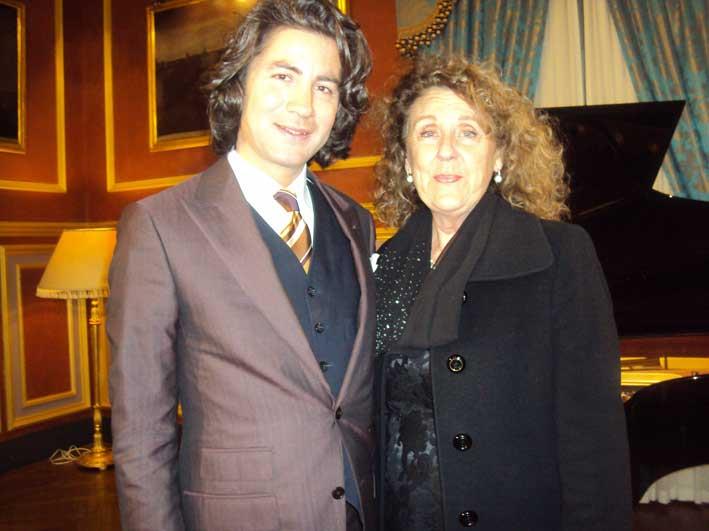It was love, loss and death most of the way
Not so long ago Tonio Portughese had a yearly rendezvous at the Manoel Theatre with those of us who love classical Italian songs, above all the Neapolitan canzone. Many of a certain age, like myself, looked forward to those lively evenings of arias from popular opera and operetta. Many of us lamented the loss of those evenings.
* * *
Neapolitan canzone became a formal institution in the 1830s thanks to the Festival of Piedigrotta. Songs such as Te voglio bene assaie, Malafemmena, Maruzzella, Indifferentemente, Marechiare,Core 'ngrato and A Vulcinella continue to be popular all over the world, but especially in those countries where Italian emigrants, many from southern Italy, can be found.
Enrico Caruso sang these songs as encores at the Met in New York in the early 1900s. This move by such a famous tenor has ensured that these well-loved songs are in the repertoire of even the most classical of singers. Just look at the popularity of The Three Tenors and Mario Lanza, Giuseppe di Stefano and others. I must mention here our very own Oreste Kirkop who sang some of these songs with such ardour.
* * *

In Malta Italian songs come with our mother's milk. I remember my mother singing them or playing them on the piano.
Which of us does not remember Massimo Ranieri, Mia Martini, Peppino di Capri and above all Roberto Murolo who died at a grand old age in his native Naples and went on singing until he was well into his 80s. I remember him on television, so much older than we first knew him but still, with that wonderful voice, still full of sentiment and emotion.
With all this in mind I went to San Anton Palace earlier this month full of expectations and to listen to a recital by Italian tenor Nunzio Fazzini and pianist Giuliano Mazzoccante. It was full house that evening as although we had no idea what these musicians were going to play and sing we were somehow certain it would be for our pleasure. Embassies (in this case the Italian embassy through the Istituto Italiano di Cultura) only bring out their best.

* * *
The recital started with three pleasant arias Bellini's Vaga luna, che inargenti and Tosti's Per morire and Addio.
In the same year that Darwin set sail in his Beagle the Sicilian Vincenzo Bellini rocked the Milan opera world with not one but two operas, La Sonnambula and Norma. The brightest shining jewel in the vocal crown of the latter is the exquisite Casta Diva, an aria Bellini rewrote some eight times. He died young, at the age of just 34.
But that evening tenor Nunzio Fazzini sang Vaga luna, che inargenti, an arietta in the bel canto style by Bellini. This was followed by two Tosti songs, Per Morire and Addio. Tosti is also the composer of the popular Neapolitan Marechiare and A vucchella and so many light expressive songs. In England where he lived he was not only knighted but was made singing master to the Royal family.
Pianist Giuliano Mazzoccante then played Scriabin's Notturno op.9 for the left hand. Scriabin was reportedly overpracticing when he damaged his right hand. He was informed by physicians that he would never play again. In due course his right hand recovered. Many of Scriabin's pieces are considered quite challenging to perform but surely this must be one of the most difficult. The audience appreciated this and the pianist was much applauded.
* * *
The tenor then gave us more popular arias from well loved operas: Donizetti's Un furtive lagrima, Verdi's Brindisi from La Traviata and Lunge da lei... de' niei bollenti spiriti also from La Traviata all sung with great passion by Nunzio Fazzini. Lovely! The audience enjoyed every single one of these arias. The pianist and tenor by now had won our hearts.
The pianist then gave us Liszt's transcription for piano of the Miserere from Verdi's opera Il Trovatore. So beautiful. So moving. As we know Liszt, aside from being an acclaimed composer, was a phenomenally accomplished pianist. His ability to play the sheer number of notes that he did, at such speed and with such precision, amazed all who heard him. So, it's not surprising that in his solo piano repertoire, Liszt stretches the capabilities of both the instrument and the soloist to their limits. I believe that had Liszt been at San Anton that evening he would have been more than happy with Mazzoccante's interpretation of this heartrending Miserare.

* * *
And as if this were not enough the last part of the recital was five of our favourite songs, four of them Neapolitan, sung with all his heart by Nunzio Fazzini. Musica Proibita, I' te vurria vasà, Dicitincello vuje, Non ti scordar di me and Leoncavallo Mattinata. The audience simply did not want this recital to end. After much clapping the two gifted artists came out again and Fazzini sang O Sole Mio where the audience joined it.
* * *
And so to drinks and canapés. However, I was determined to get a couple of photos of the two musicians and asked them if they would please go back near the piano and pose for me. They gave a handful of us who were in the piano room an impromptu concert. More Neapolitan songs and some Chopin. They told me how much they enjoy what they do. This was evident. Grazie Italian Embassy and above all Dott. Salvatore Schirmo the director of the Italian Institute who will soon be leaving Malta alas. He told me 'Did you notice that most of the songs were about Love, Loss and Death'. Yes, but isn't that what life is largely about?
[email protected]